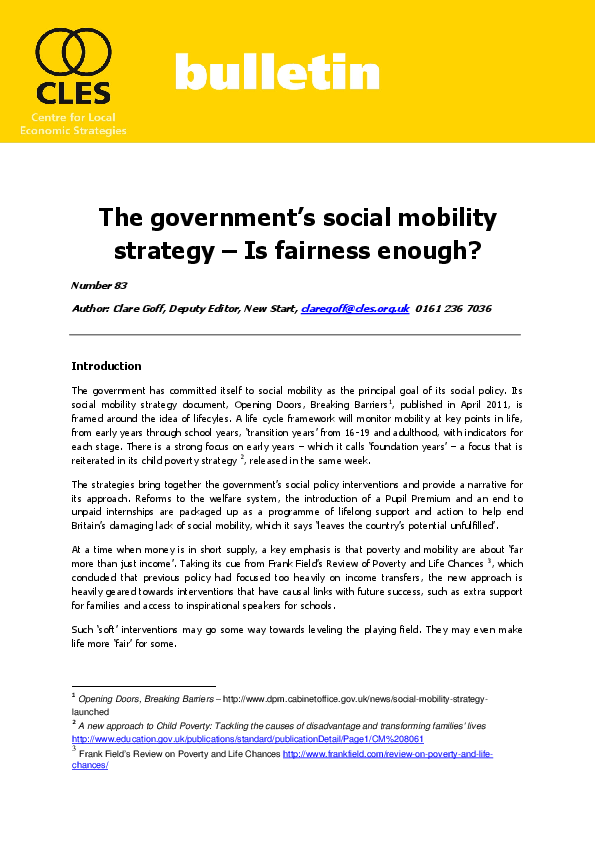The government’s social mobility strategy – Is fairness enough?
The government has committed itself to social mobility as the principal goal of its social policy. Its social mobility strategy document, Opening Doors, Breaking Barriers, published in April 2011, is framed around the idea of lifecyles. A life cycle framework will monitor mobility at key points in life, from early years through school years, ‘transition years’ from 16-19 and adulthood, with indicators for each stage. There is a strong focus on early years – which it calls ‘foundation years’ – a focus that is reiterated in its child poverty strategy, released in the same week.
The strategies bring together the government’s social policy interventions and provide a narrative for its approach. Reforms to the welfare system, the introduction of a Pupil Premium and an end to unpaid internships are packaged up as a programme of lifelong support and action to help end Britain’s damaging lack of social mobility, which it says ‘leaves the country’s potential unfulfilled’.
This bulletin assesses the key elements of the social mobility and child poverty strategies and explores some of the issues behind its approach.



